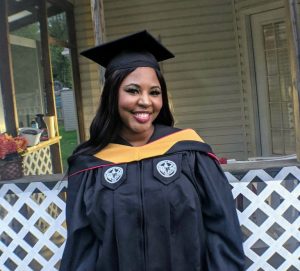
By David Miller
Eviction notices. Homeless shelters. Conditional living arrangements.
For a brief period during sixth grade and during two years of high school, Rebekah Koen and her family navigated the challenges of homelessness in central Alabama. Housing services were an option, but meeting qualifications wasn’t always guaranteed, though an indefinite wait usually was.
Homelessness was stressful, but also revealing of a social work system that Koen had thought of only through a narrowed scope, particularly when her family finally found relief. As a military veteran, Koen’s mother Crystal was eligible for housing assistance through the Rapid Rehousing Program, a federal program aimed at expediting the lengthy process of moving families into permanent housing. Koen said a social worker in Birmingham helped connect her family to this program.
But Koen learned that her stretches of homelessness could have been avoided if they’d known sooner from previous social workers of their eligibility.
“That’s when I started to learn social work was more than the Department of Human Resources, and just how pivotal of a role social workers have in helping people,” Koen said. “And to know there were preventive measures like [the Rapid Relief Program] got me into the field.”
Koen recently earned a master’s degree in social work and has accepted a job with the veterans services department at Friendship Place in Washington, D.C., a federally funded housing service provider.
It isn’t ironic, nor is it “full circle” that Koen will now work with homeless populations and military veterans, but it is “really interesting” since she’d previously planned to delay working with homeless populations.
“I always thought about it being 10 years off, maybe after I get my PhD, when I’m more mature and not putting too much personal stake into the job,” Koen said. “I really wanted to make sure I’m coming from a place of logic and education, and not trying to help that little girl inside of me.”
Koen said Friendship Place was looking for candidates with a lot of experience, so her expectations when applying there were for interview experience and to leave an impression for future job consideration. But after several interview rounds, she thought, “wait, I might actually be a candidate.”
She said she was offered the job, in part, because of the same personal stake she thought would cloud her judgment when working with homeless populations.
“My future supervisor said that self-awareness can actually help me,” Koen said. “Because of [a personal stake], I think they knew I wanted to work there long term.”
Koen said she’s grateful for her internship at the National Institutes of Health, a micro-placement that she initially wasn’t interested in due to her macro-focus. She said she was “crushed” after a poor interview for a macro-level placement, but her placement at the NIH helped her see policy in action.
“Not only was I in D.C. at this prestigious institution,” Koen said, “but I’m interacting with clients who have rare diseases that have run their course, people who are dying and are there to help the researchers as much as possible. Speaking with them and getting to know those clients, I realized I was capable of doing the work that I thought was so far off for me.”
